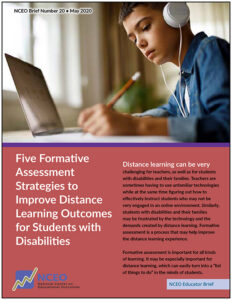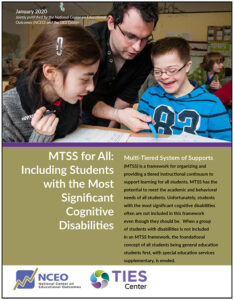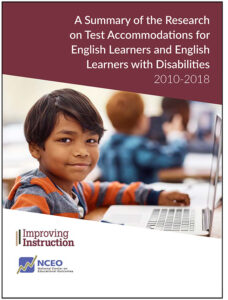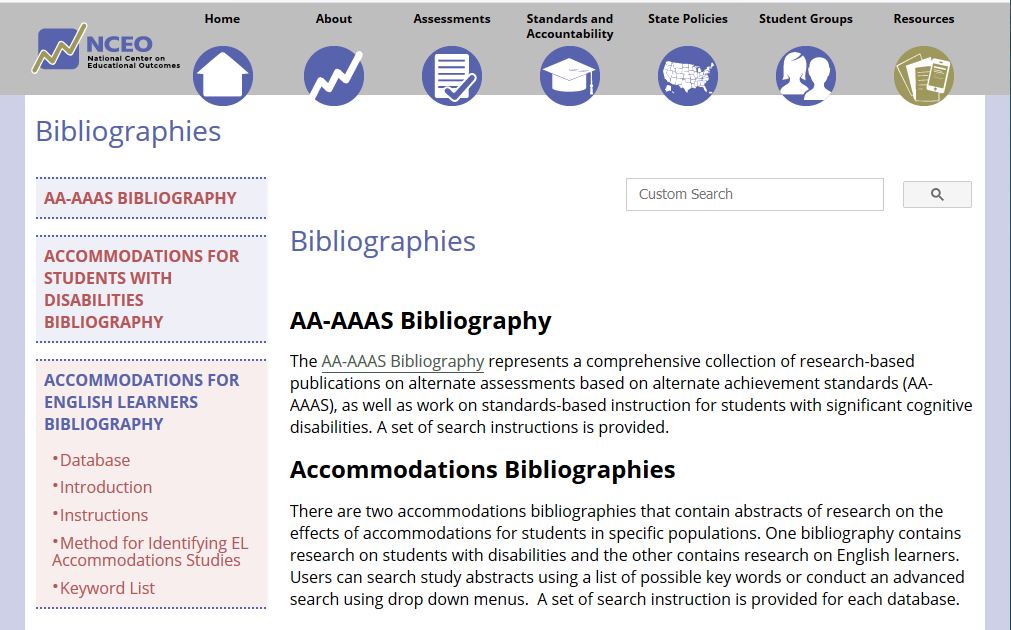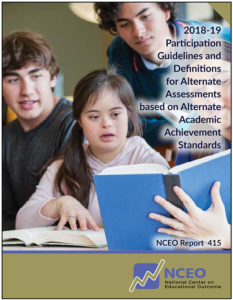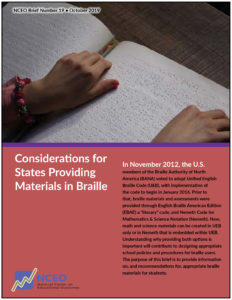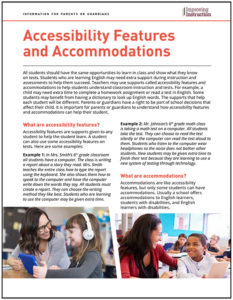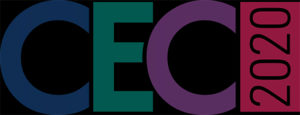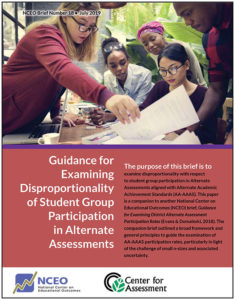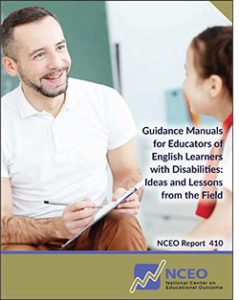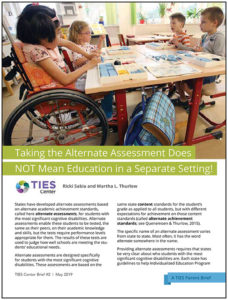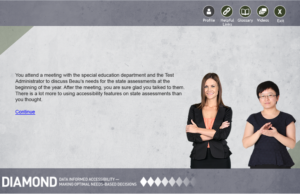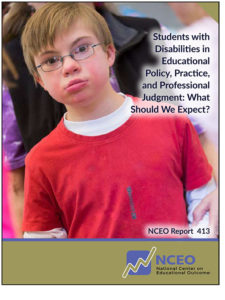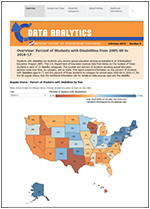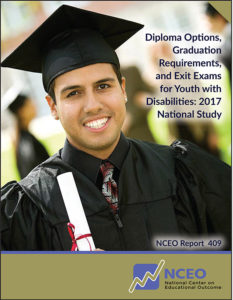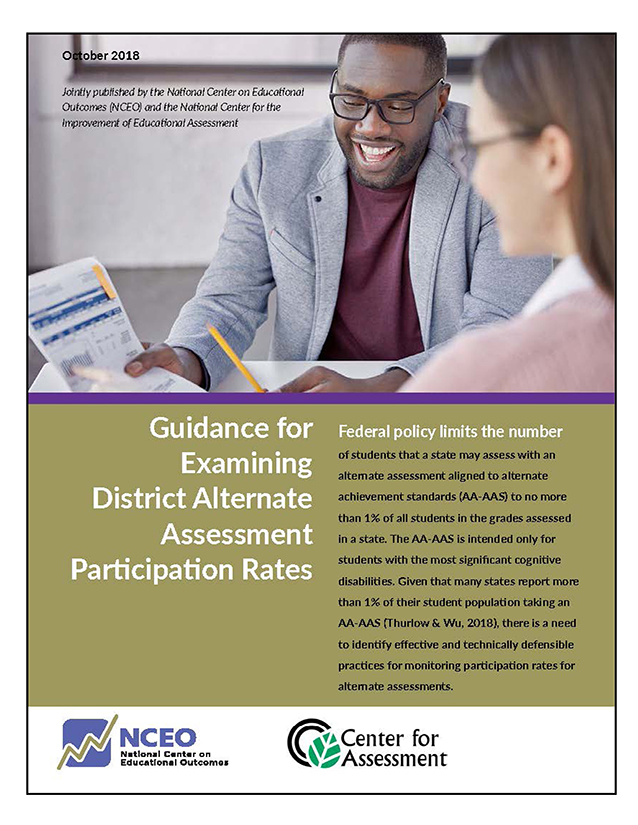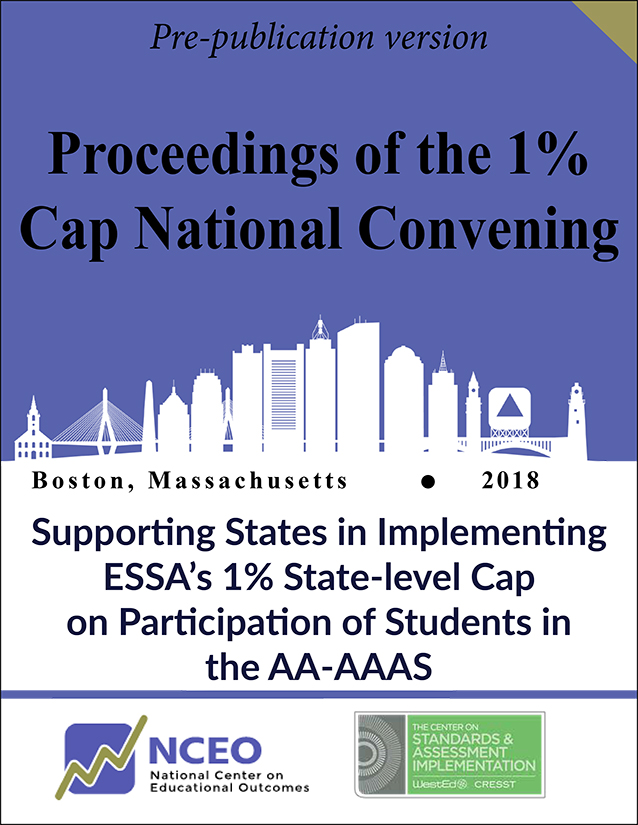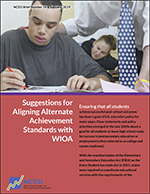Welcome
Welcome to NCEO’s June newsletter. It has been a very busy spring at NCEO. Staff are focusing on new issues and questions that have arisen as a result of COVID-19, while continuing the work that NCEO has always done.
In this issue, we highlight several new resources that address various aspects of distance learning, including a new brief on formative assessment strategies to improve distance learning outcomes for students with disabilities. We also are highlighting resources in the continually growing series on distance learning that is being developed by TIES Center, which is a NCEO affiliated project. This series is focused on instruction and engagement of students with significant cognitive disabilities in a distance learning environment.
This issue also includes an article about a new brief on multi-tiered systems of support (MTSS) for all students, including students with significant cognitive disabilities, as well as an article about several new interactive Data Analytics which enable users to explore and visualize data about assessment participation and performance. We conclude with two articles about products created by a NCEO affiliated project, the Improving Instruction for English Learners Through Accessibility Decision Making project – a report that presents the findings of a literature review on research on test accommodations for English learners and English learners with disabilities, and information about two new professional development modules on accessibility decision making.
Sheryl Lazarus, NCEO Director
Brief on Formative Assessment Strategies to Improve Distance Learning Outcomes for Students with Disabilities
NCEO recently published Five Formative Assessment Strategies to Improve Distance Learning Outcomes for Students with Disabilities. This brief describes the use of formative assessment processes with students with disabilities during distance learning. Formative assessment is important for all kinds of learning, and especially focuses students on learning and evidence of learning.
New TIES Center Distance Learning Series
A NCEO affiliated center, TIES Center, launched a distance-learning series that provides a framework for students with the most significant cognitive disabilities to get through these new transitions to distance learning, engage fully in academics online, and interact with their teachers and peers, a critical component of well-being.
New Brief on Including Students with the Most Significant Cognitive Disabilities in Multi-Tiered System of Supports
NCEO and an affiliated center, TIES Center, recently co-published MTSS for All: Including Students with the Most Significant Cognitive Disabilities. The brief provides suggestions for ways in which multi-tiered system of supports (MTSS) can include students with the most significant cognitive disabilities so that MTSS provides a whole school and whole district approach.
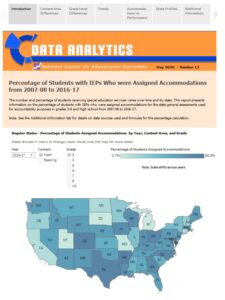 Three New Interactive Data Analytics Published
Three New Interactive Data Analytics Published
NCEO has published three new interactive Data Analytics reports. Two reports provide a way for users to visualize and understand trends in assessment participation and accommodations use for students with disabilities over time. The third report explores and summarizes states’ practices on publicly reporting assessment data for students with disabilities and English learners with disabilities.
Research on Test Accommodations for English Learners and English Learners with Disabilities from 2010 to 2018
An NCEO affiliated project, the Improving Instruction for English Learners Through Accessibility Decision Making project, recently published a comprehensive literature review titled A Summary of the Research on Test Accommodations for English Learners and English Learners with Disabilities: 2010-2018. In this review, the authors examine the purpose of each study, the type of assessment measured, the content area assessed, the type of linguistic support accommodation examined, the characteristics of the research sample and the participants, the type of research design, the findings, and author-identified limitations.
Modules on Supporting English Language Learners Through Improved Accessibility Decision Making Launched
An NCEO affiliated project, the Improving Instruction for English Learners Through Accessibility Decision Making project, recently released two online professional development modules on accessible instruction and assessment for K-12 English learners. One module is for elementary teachers and the other is for secondary teachers. The modules help teachers learn how to facilitate and document high-quality decision making about accessible instruction and assessment for English learners.
NCEO’s National Assessment Center is supported through a Cooperative Agreement (#H326G160001) with the Research to Practice Division, Office of Special Education Programs, U.S. Department of Education. The Center is affiliated with the Institute on Community Integration at the College of Education and Human Development, University of Minnesota. The contents of this report were developed under the Cooperative Agreement from the U.S. Department of Education, but do not necessarily represent the policy or opinions of the U.S. Department of Education or Office within it. Readers should not assume endorsement by the federal government.

